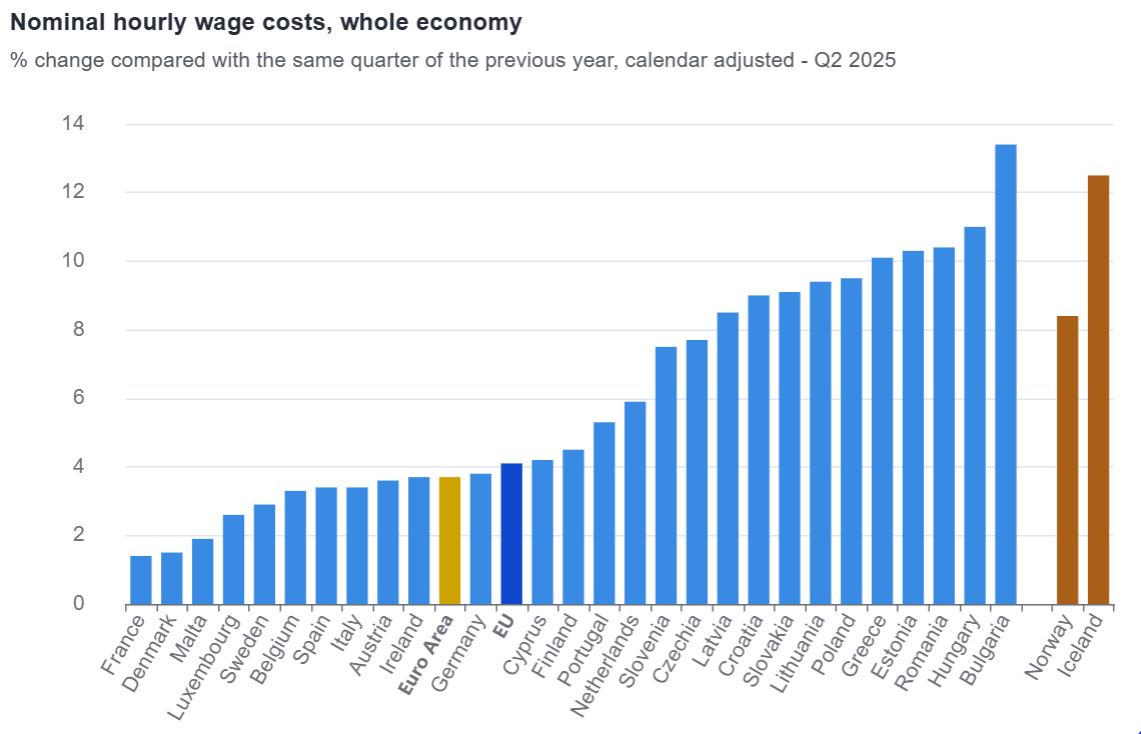Wage costs borne by companies per hour worked increased 5.3% in Portugal during the second quarter of this year, compared to a year ago. According to data released by Eurostat, this increase was higher than the average not only for the European Union (4.1%), but also for the Eurozone (3.7%).
Labour costs are composed of two components: wage costs and other costs, according to a report by Eco.
In the second quarter, wage costs in the Eurozone increased 3.7% year-on-year, while in the European Union, growth was 4.1%. Other costs rose 3.4% in the single currency area and 3.8% in the EU bloc.
 Author: Eurostat;
Author: Eurostat;
In comparison, in the second quarter, Portugal saw wage costs increase by 5.3% and the rest by 5.1%, compared to a year earlier. This means that Portugal surpassed the European Union and Eurozone averages in both indicators.
Among the various member states, Bulgaria recorded the largest annual increase in wage costs (+13.4%), followed by Hungary (+11.0%). “Three other member states recorded an increase of 10% or more: Romania (+10.4%), Estonia (+10.3%), and Greece (+10.1%),” Eurostat notes.
On the other hand, France, Denmark, and Malta recorded the smallest increases in wage costs in the second quarter, with increases of 1.4%, 1.5%, and 1.9%, respectively.
